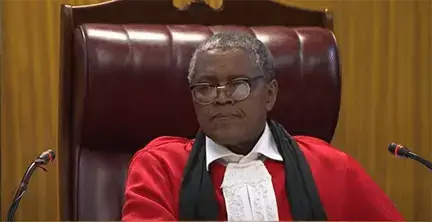After an arduous five-month trial within a trial, the high court in Pretoria has delivered a pivotal ruling in the case involving the murder of Senzo Meyiwa, the acclaimed footballer.
The court has deemed the confessions made by accused number one, Muzikawukhulelwa Sibiya, and accused number two, Bongani Ntanzi, as having been made freely and voluntarily, admitting them as evidence in the main trial.
The trial within a trial commenced in October 2023 and has been centred on scrutinising the circumstances surrounding the confessions of Sibiya and Ntanzi.
Both individuals had initially confessed to the murder of Meyiwa, which occurred at the residence of his then-girlfriend, Kelly Khumalo, in Vosloorus on October 26 2014.
Accused pleaded not guilty
However, they later alleged coercion through assault and torture, casting doubt on the voluntariness of their confessions.
Meyiwa’s murder has remained a highly publicised case, with five men currently standing trial for the crime.
Alongside Sibiya and Ntanzi, the defendants include Mthobisi Mncube, Mthokoziseni Maphisa, and Sifisokuhle Ntuli, all of whom have pleaded not guilty to the charges.
During the hearing on Thursday, presiding Judge Ratha Mokgoatlheng addressed the court, acknowledging that the evidence of the accused is that they do not know the contents of the confessions.
Mokgoatlheng said he has meticulously analysed the evidence presented by both the prosecution and the defence, considering cross-examinations, rebuttal evidence from the accused, as well as arguments and submissions from all counsel involved.
Confessions made without coercion
Delivering the ruling, Mokgoatlheng affirmed that the court had thoroughly examined whether the confessions were made without coercion or force and reached a conclusion that favoured the state’s version.
“This court has reached the following conclusion: the confession made by the accused was made freely and voluntarily without any coercion.
“And the confession made by the accused two was made freely and voluntarily, without any coercion, in his sound and sober senses.”
Legal expert and lawyer Lekoko Mateme previously stated: “Should the confession be admissible, the state would have a very good ride in proving the case against the accused beyond reasonable doubt.
“This is because pertinent evidence would have been admitted in the form of a confession.
“The defence would be trying very much to create doubt in the confession through subsequent evidence.”
The proceedings were adjourned until Friday.



